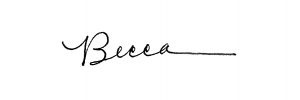Choices

At five a.m. in our landlocked valley, cauliflower heads of unexpected thunderheads rise beyond the woods to the west. Shall I walk while it’s still cool, or write? Check email or work on a blog post? The first of the day’s choices, easy ones in my relatively privileged life, present themselves like cards in a game of rummy.
There are decisions and decisions, all with impacts that ripple out large and small. This morning I was reminded of the ethical impacts of our everyday choices in an email from Australian author and scientist Margi Prideaux. I met Margi through a writing connection last month and became an instant fan: she advocates for wildlife and watches world ecology like a hawk (a cliché inspired just now by a red-shouldered hawk’s cry from the nearby woods).
On June 5, 2017, Margi tweeted about an article in The Guardian UK, “The Eco Guide to Tinned Tuna,” which applauded the Marine Stewardship Council’s (MSC’s) recent award of its coveted blue tick (seal) for successful sustainability standards. In this case, Margi points out, the tick could be misinterpreted as approval of Pacific blue fin tuna harvest.
Margi’s tweet:
Hmmm. Not so sure. Has anyone information about the MSC conditions for this fishery? Keen to hear other thoughts
— Margi Prideaux (@WildPolitics)
MSC responded not with invective at 3 a.m., as some whose names we won’t mention might do, but with more information and background on the award. Far from saying “our work here is done”—that Pacific fisheries are above reproach in methods of harvest and regulation—the Council’s certification is meant to support the progress that has been made. Still, there’s a long way to go to protect sea creatures from basically too much take.
As The Guardian article states and Margi is underscoring, if we’re not to fish out the world’s tuna, then “Products conforming to baseline agreements should not be billed as [simply] the eco choice. They’re the only choice. It’s time retailers (and chefs) removed all non‑sustainable fish from shelves and menus.”
And, as individual shoppers, we can spend those extra few cents or even dollars at the market supporting those practices that will protect our oceans. Margi tells us it does make a difference. I’m reminded of recent words from one of my favorite authors, philosopher Kathleen Dean Moore, in a mailing from The Sun magazine:
Deciding we won’t drive to that chain grocery store and buy that imported pineapple is a path of liberation. Deciding to walk to the farmers’ market and buy those fresh, local peas is like spitting in the eye of the industries that would control us. Every act of refusal is also an act of assent. Every time we say no to consumer culture, we say yes to something even more beautiful and sustaining. Life is not something we go through or that happens to us; it’s something we create by our decisions.
Today in my valley, the choices I make matter, too. I can be carbon wise and take the ten extra minutes to walk to a local meeting. I can batch my errands or order delivery from a local vendor who’s already out and trip linking. I can be mindful of how I maintain the livability of my home, using minimal amounts of solar-sourced electricity to cool in summer and heat in winter. (Tip: Although the U.S. EPA’s advice to individuals to cut carbon, save money, and reduce pollution were not available as of this writing, Canadian scholar and activist David Suzuki maintains an excellent site on how to make easy, daily earth-wise choices at the individual level.)
As Margi says in her response to The Guardian article, “[I]s MSC certified tuna better than the free for all in the other tuna fisheries? Yes, absolutely. And by a significant margin.” Buy the right tuna, make the right climate choices, and “do so with your eyes wide open.” We’ve a long way to go, but the cumulative impacts of choices we make in our relatively privileged lives do make a difference.


Leave a comment